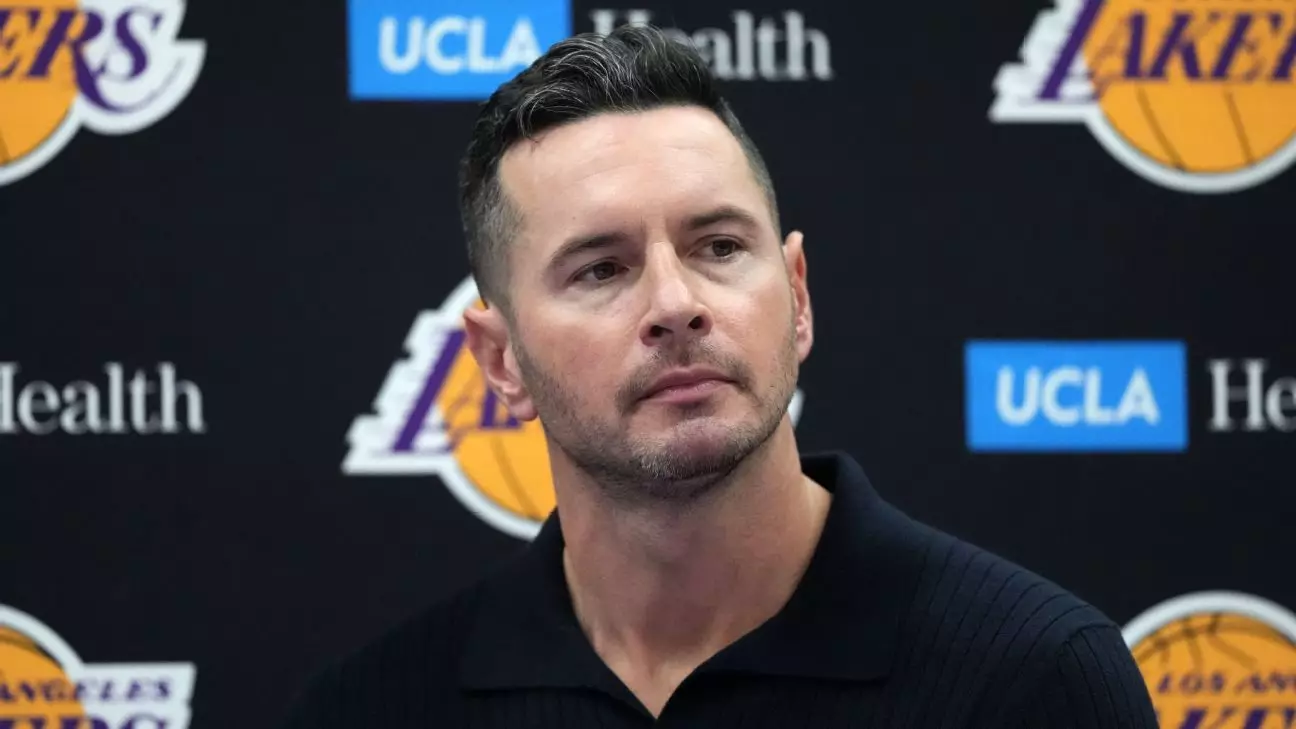The basketball world is in constant flux, with narratives shifting as players transition to new roles, especially when leaving behind a career in media. One fascinating example of this transition is JJ Redick, who finds himself stepping back onto the court, no longer as an analyst but as the head coach of the Los Angeles Lakers. This change invites introspection into how past remarks and relationships can influence current dynamics in a high-stakes environment like the NBA.
JJ Redick’s career pivot is spotlighted in a recent clash between the Lakers and the Milwaukee Bucks, who are led by his former coach Doc Rivers. During his time as an ESPN analyst, Redick was known for his outspoken criticism of Rivers, particularly concerning the Bucks’ struggles early in the season. He expressed concerns about Rivers’ tendency to deflect accountability, using animated language that left a substantial mark on viewers. Redick’s critique, captured during an episode of ESPN’s “First Take,” reflected the pressures and emotions tethered to coaching in the NBA. His claim that Rivers was quick to make excuses resonated with fans and analysts alike, highlighting the tension that can brew beneath the surface of professional sports.
While reflecting on his previous comments, Redick acknowledged that he might have chosen a different tone had he known he would eventually enter the coaching ranks. His regret demonstrates a deeper understanding of the complexities involved in balancing critique and camaraderie in a competitive setting. The original remarks, filled with passion, have now evolved into a point of reflection for Redick as he strives to build relationships with his players, including the very coach he once scrutinized.
In contrast to Redick’s candid self-examination, Doc Rivers responded with measured composure. As a seasoned coach, he articulated that the dynamics between players and coaches often lean towards discord, particularly when change is involved. Rivers emphasized that any rift with Redick has been largely one-sided, suggesting that his coaching philosophy is rooted in unconditional support for his players. This perspective reflects Rivers’ extensive experience in the league—after 26 years and numerous accolades, he understands the inevitable strains within a coach-player relationship.
Rivers’ comments also suggest an inherent emotional complexity. Coaches invest considerable energy and passion into their work, which may not always be reciprocated or recognized. This reality checks the romanticized view of player-coach relationships, reminding spectators that behind the headlines often lie deep emotional narratives and nuanced truths.
The connection between Redick and Rivers extends beyond their direct interactions, as it also encompasses Darvin Ham, the coach Redick replaced in Los Angeles. Ham, whose own trajectory with the Lakers created ripples in the organization, now serves as an assistant coach for the Bucks. The intertwining of these coaching narratives underlines the often tumultuous journey coaches undergo, marked by public perception, media scrutiny, and evolving team dynamics.
This narrative extends beyond simple rivalries or transitions; it touches upon fundamental truths about professional ethics in coaching. For example, Ham’s recent reflections on his time with the Lakers reveal a more nuanced view. Despite being fired, he remained optimistic about the team’s trajectory under his guidance. His sentiments highlight his commitment to the organization’s growth and well-being, even as he transitions to a new role. Ham’s ability to focus on positive outcomes suggests a resilience that is perhaps necessary for a successful coaching career.
As Redick embarks on this new chapter with the Lakers, it is crucial for him to navigate the complexities of prior relationships and public perspectives. The challenge of establishing authenticity and connection with his players will shape his coaching philosophy and dictate his success. The basketball community often thrives on engaging narratives—whether that involves critique, rivalry, or collaboration.
The journey for Redick, Rivers, and Ham paints a vivid picture of the NBA’s landscape: a place where loyalty, competition, and personal growth intertwine. As they adapt and evolve, there is a charming beauty in watching these figures traverse the nuanced layered fabric of professional basketball. In understanding the stakes involved, each can contribute to their own story while shaping the narratives of those around them. Through their experiences, they echo a timeless truth—growth often arises from discomfort, and progress is forged in the crucible of challenge.

